One of the most used - some would say overused - words of 2020 has been ‘unprecedented’.
On top of the obvious health and safety repercussions, the coronavirus pandemic has impacted on all walks of life and business, with professional sport among the industries most affected.
The lockdown that extended to much of the globe in the first half of the year resulted in a suspension of leagues and competitions, and the postponement and cancellation of tournaments of all sizes.
The knock-on effect is that stakeholders now also face an unprecedented 2021, with a packed calendar including delayed league seasons and events held back from this year, plus competitions that were already scheduled for the next 12 months.
Having been deprived of top-class sport for an extended period in 2020, the winner will be the fan who will have a multitude of viewing options, even if, as a result of continued Covid-19 restrictions in many parts of the world, opportunities to actually attend events are scarce.
The situation is less satisfactory for federations, event organisers, agencies, broadcasters and sponsors, which face a bigger fight for exposure than would have been the case in a normal year, with the implications particularly significant for smaller sports.
The solutions adopted or being advocated include prioritising major events, creative scheduling and a greater reliance on digital platforms, but some compromise will be necessary, and similar issues are set to raise their head in 2022.
MEGA EVENTS
The most notable events to have been carried over from 2020 to 2021 are the Olympic Games and soccer’s European Championships.
The delays have presented the International Olympic Committee and the Tokyo 2020 organisers on one hand, and Uefa and the 12 Euro 2020 host countries on the other, with logistical and financial challenges, while impacting on broadcasters and sponsors that have rights to one or indeed both showpieces.
Japanese reports have suggested that the delay to the Olympics will add around $2.8 billion to the original budget of $12.6 billion for the games, while the IOC has set aside $650 million to cover potential extra costs.
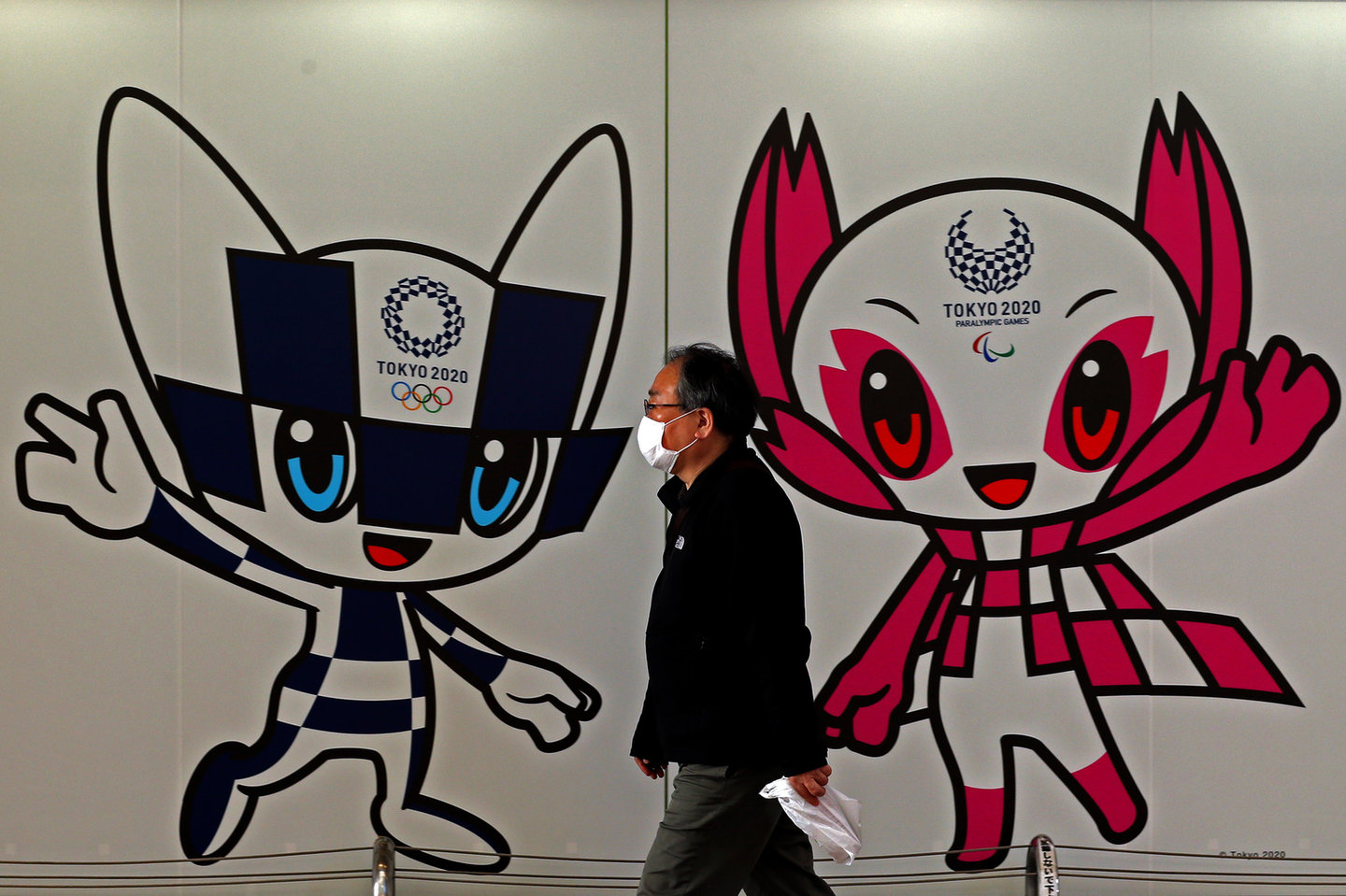
The Tokyo 2020 Olympics have been postponed to 2021
Meanwhile, Uefa, which was already contending with the complexities of a first pan-continental Euros, has had to rebook venues and hotels, and reschedule the tournament in a slot at the end of a 2020-21 soccer season made more congested by the late starts to domestic leagues, a consequence of the shutdowns in the spring of this year.
However, given the global appeal of the Olympics and the Euros, these events are still expected to command huge audiences, and it will be the smaller competitions that have to fight the hardest for viewership and revenue next summer.
“Our advice to partners has been to constantly keep the end consumer (i.e. fans) at the centre of any plans they have.”
Bruno Marty, senior vice-president of ProSports at international sports marketing agency Infront, tells Sportcal Insight: “Finding a gap in next year’s calendar is going to be challenging, especially when including events such as Tokyo 2020 and Euro 2020. Whilst it would be ideal for us to pinpoint and properly organise the year for all our clients to truly maximise commercial revenue, there are so many factors (organising committee, host cities, venues, staffing, travel etc) that are decided far in advance and don’t offer much flexibility.
“Our advice to partners has been to constantly keep the end consumer (i.e. fans) at the centre of any plans they have. The expected congestion means more competition for attention and it will be the rights holders which pivot to address fans’ needs quickest that will win the battle for exposure.”
OLYMPICS SHIFT
In late March, the IOC and Tokyo 2020 bowed to the seemingly inevitable and announced that the Olympics would be postponed by 12 months to July-August of next year, while the Paralympics were similarly delayed to August-September.
The decision was taken in the same month that top leagues and competitions across the major sporting markets of Europe and the Americas were shut down as lockdowns were imposed in the face of escalating Covid-19 cases, and with national Olympic committees and athletes pressing for a deferral given the likely disruption to their preparations.
This year marked the first time outside the two world wars that an Olympics has not taken place as scheduled, and, with ongoing travel restrictions and a resurgence in the virus in many countries, uncertainties remain over the games in 2021.
However, IOC president Thomas Bach is confident that they will take place in some form, citing the potential use of rapid testing, vaccines and quarantines, and expressing hope that fans from overseas, as well as Japan, will be able to attend.
He said in early October: “We saw a very encouraging start to some of the leagues in Japan in the last couple of weeks, with a good number of spectators, and we have to see, with the additional tools that we will have at our disposal by next year, how we can fill the stadia and how much we can fill them."
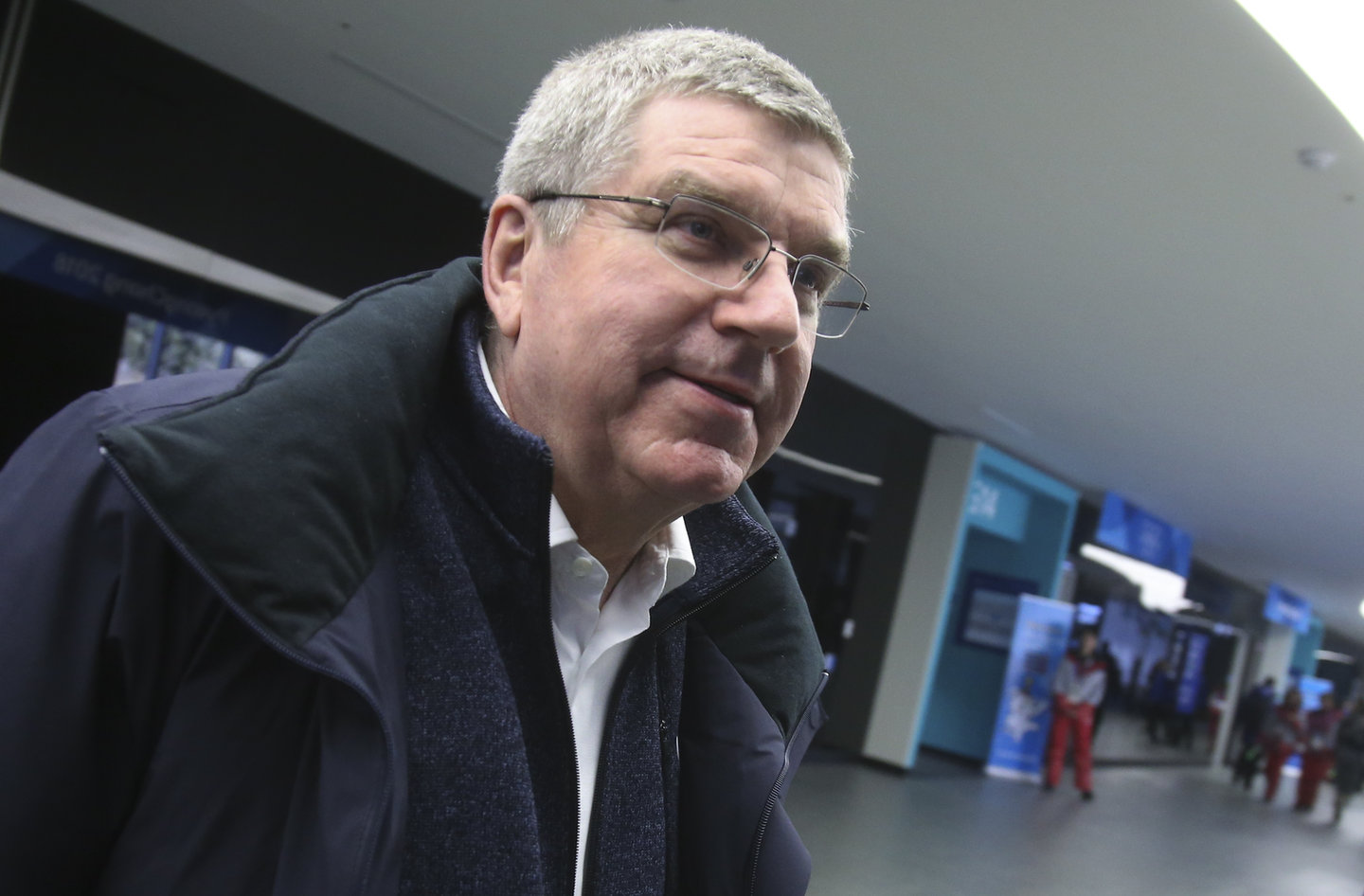
IOC president Thomas Bach is confident the Olympics will go ahead, and hopefully with spectators
Cancellation, rather than a further postponement, is seen as the only outcome if the Tokyo games cannot be held in 2021, but Japan’s Olympics minister Seiko Hashimoto outlined the resolve of the government when she said in September: “Everyone involved with the games is working together to prepare, and the athletes are also making considerable efforts towards next year. I think we have to hold the games at any cost. I want to concentrate all our efforts on measures against the coronavirus.”
Moving the Olympics to 23 July to 8 August, 2021 does not present too many high-profile sporting clashes given that the dates are practically the same as they would have been this year, with the main European soccer leagues only just getting under way, and the NFL campaign yet to start.
However, there are implications for Olympic sports, which are having to draw up calendars that take into account rescheduled qualifying competitions, while both World Athletics and FINA, the international aquatics federation, have postponed their planned World Championships, in USA and Japan, respectively, until 2022.
There will also be increased demands on the IOC and NOCs given that the Beijing 2022 Winter Olympics will follow just six months after the Tokyo showpiece.
EUROS DELAYED
The international governing bodies most affected by the pandemic and the postponement of events are led by Uefa, which, after a five-month break, had to cram the final stages of the 2019-20 Champions League and Europa League into August, and delay its headline European Championships from June and July of this year to the same slot in 2021.
The latter move was mirrored by Conmebol, which put back the 2020 Copa America in Argentina and Colombia by 12 months, while Fifa has had to put on ice the inaugural edition of its revamped 24-team Club World Cup, which was due to take place in China next summer.
Euro 2020 is now scheduled for 11 June to 11 July of next year, and Uefa is still outwardly expressing determination to hold the event, only the second to involve 24 teams and 51 matches, in the same 12 host cities - Amsterdam, Baku, Bilbao, Bucharest, Budapest, Copenhagen, Dublin, Glasgow, London, Munich, Rome and Saint Petersburg.
This is despite a second wave of coronavirus in Europe, which has resulted in fresh lockdowns and travel restrictions, which appear to run contrary to the concept of a multi-country event that was meant to commemorate the 60th anniversary of the European Championships.
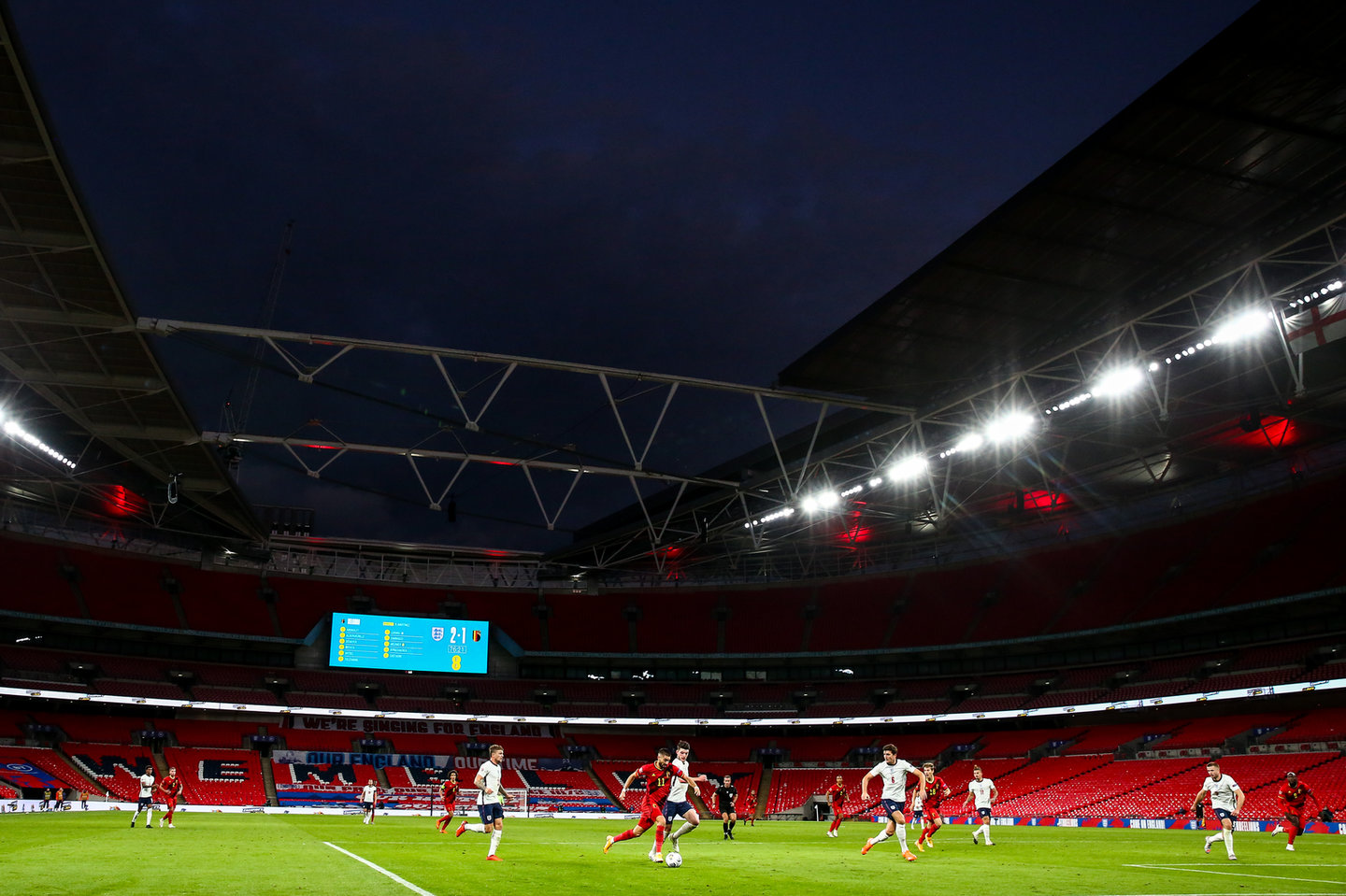
Wembley Stadium is due to host the semi-finals and final of Euro 2020
Speaking to media in October, Uefa president Aleksander Ceferin said: “For now, we are planning exactly the same Euros… We don’t have any Plan B for now, [but] we will monitor the situation.”
Reports have suggested that the number of countries could be reduced, and this has not been ruled out with the Uefa head saying: “We could hold the Championships, instead of in 12 countries, in 11, or eight, or five, or even one… So we are still discussing the situation, we will see.”
Ceferin has maintained that Uefa will wait until nearer the time, and see how the hosts are faring in terms of the containment of the virus, before making any final decisions, with March 2021 widely seen as a deadline.
As things stand, Wembley Stadium in London is due to host the semi-finals and final of the delayed Euro 2020, but, as with the Olympics, there remains uncertainty over whether spectators will be able to attend matches at the tournament.
At the very least, Uefa will be hopeful there will be no repeat of this year’s suspensions of domestic and European competitions that forced it to postpone the Euros for the first time, and which have resulted in condensed seasons in 2020-21.
The bottleneck in the international sports calendar in 2021 will be exacerbated by the fact that, as a result of the late finishes to last season, most of Europe’s top soccer leagues did not kick off until mid-September, and they, together with the Uefa club competitions, will have to be completed by the end of May, because of the impending Euro 2020.
“It will obviously be a busy year in sports. But our partners remain committed to Uefa.”
However, Guy Laurent-Epstein, Uefa’s marketing director, insists the governing body has sought to minimise the commercial effects of the Euros rescheduling, telling Sportcal Insight: “It’s important to note that we have not changed the actual schedule… or deviated from the traditional June and July window. Our partners have welcomed that decision, as they have with all the decisions we have had to make so far this year.”
As it is a month-long tournament, there will inevitably be clashes with other major events, including tennis’ Wimbledon Championships, which are returning in 2021, having been cancelled this year.
“It will obviously be a busy year in sports,” says Epstein. “But our partners remain committed to Uefa.
“Contingency planning is always part of planning for a tournament the size of the Euros, even more so given the current situation… Where the situation forces us to adapt, we will do so together as we have in the past.”
THE WIDER CALENDAR
Other prominent events that have been postponed to next year include the World Athletics Indoor Championships in China, the inaugural edition of The Hundred, English cricket’s glitzy new short-format competition, and golf’s Ryder Cup in USA.
Meanwhile, as a result of delayed conclusions to the previous seasons, the 2020-21 NBA season is not due to tip off until 22 December, while the NHL is looking at a 1 January start (both normally begin in October).
After its 2020 campaign was delayed and shortened as a result of the pandemic, Formula 1 is planning to stage a record 23 rounds next year, while the top golf and tennis tours will also be looking to make up for lost time, and it is envisaged that the respective majors and grand slams will be held in their regular slots.

Bruno Marty, senior vice-president of ProSports at Infront
It also promises to be a busy year for agencies such as Infront, whose clients include the likes of Italian soccer’s Serie A, the European Handball Federation, European volleyball’s CEV, the Badminton World Federation, all seven of the international Winter Olympic sports federations, and the FIM, the international motorcycle racing federation, for the Motocross World Championship.
Asked what are the main issues for Infront from the postponement of major events this year and the congestion in 2021, and how it is facing up to these challenges, Marty says: “Incoming revenue delayed, addressed through government support and a streamlined strategy for 2020; and a resource crunch when it comes to ensuring we deliver the usual service, addressed by properly managing expectations from stakeholders and having an open and transparent dialogue on what can be done given the limitations the industry as a whole is facing.”
To date winter sports have been relatively unaffected by the pandemic given that their latest seasons were largely completed by the time of the western lockdowns, although ice hockey’s 2020 IIHF World Championship in Switzerland and the 2020-21 Champions Hockey League, two competitions marketed by the agency, have been cancelled.
Marty says: “If there is an overload then it’s more likely to be in 2022 with the Winter Olympics. For next season I do not see a huge difference. The only season that has been squeezed for us is the football season, which will lose its winter break now. That means more football weekends will overlap with winter sports weekends, but the situation is not as dire as first imagined.”
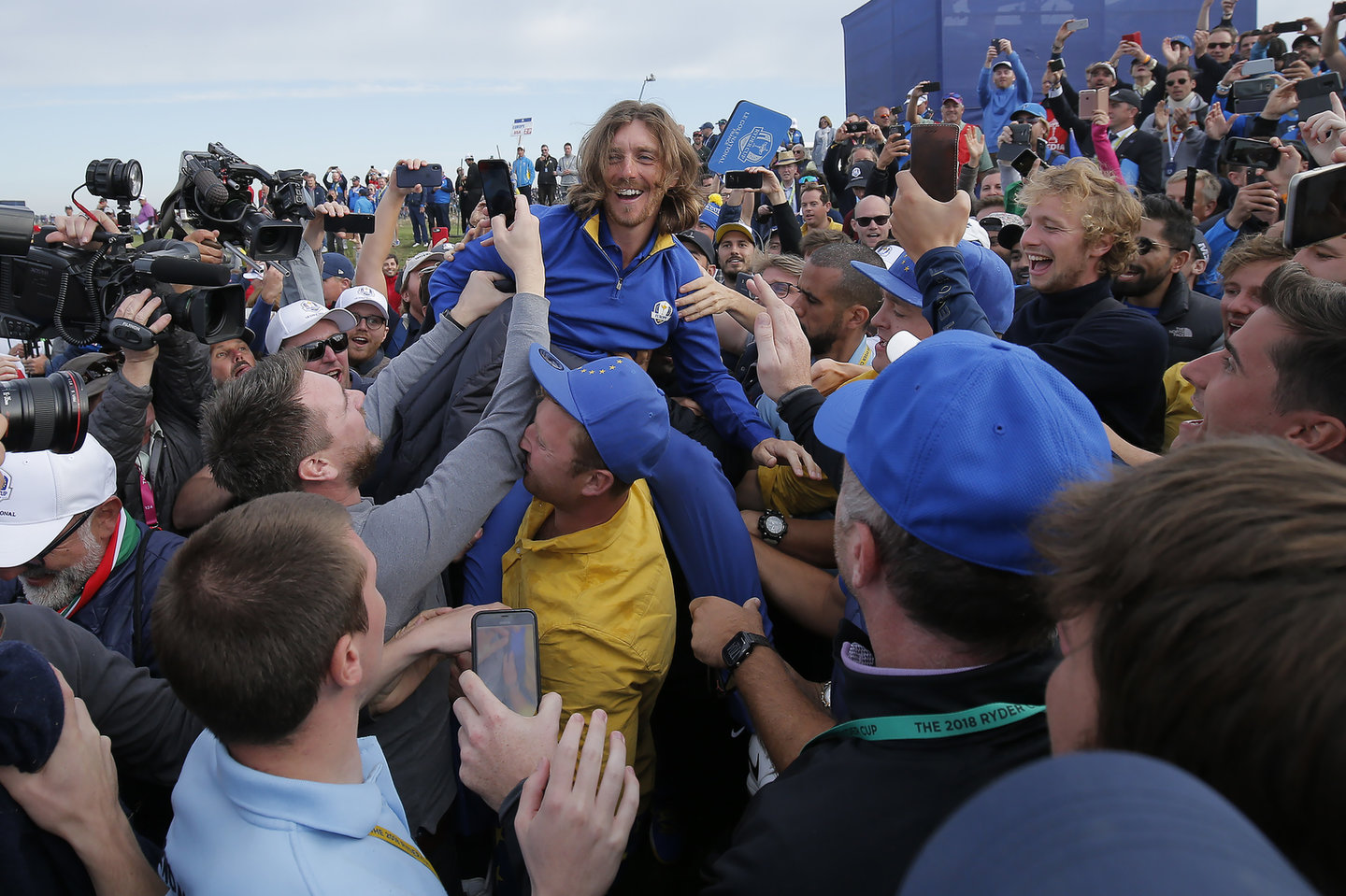
The Ryder Cup has been postponed to 2021 in the hope that fans can attend
While men’s golf’s PGA Tour and European Tour did return this summer, and all four majors bar the cancelled British Open were rescheduled, the Ryder Cup, due to take place this September, was postponed by a year, in large part because of the desire to have crowds (bringing ticketing revenue) at the prestigious USA-Europe team contest at Whistling Straits in Wisconsin.
The move will have financial implications, and does add to the congestion at the back end of the 2021 season, but the PGA of America said that by taking the decision in July, before the construction of necessary facilities at the course, it was “well-positioned” for the event.
On the perceived advantages of the rescheduling, Jason Mengel, the championship director of the 43rd Ryder Cup, tells Sportcal Insight: “From the outset of the pandemic, every decision we’ve made about our championships and events has been with the health and wellbeing of all involved as the highest priority. The Ryder Cup is distinct and different from any other event in golf. It is at its best with spectators, who are not only seen and heard, but felt.”
He adds: “It is certainly difficult to forecast the ramifications of a global pandemic, but our decision to reschedule for 2021 provided the best opportunity for full attendance. That remains our primary objective, assuming it can be achieved in a responsible manner.
“Beyond that, another unintended consequence is that an extra year of anticipation never hurts. Sports fans worldwide are anxious to see how the latest chapter of the Ryder Cup will be written at Whistling Straits.”
BROADCASTING REFOCUS
One of the sports industry sectors most affected by the Covid-19 crisis has been broadcasting, a not insignificant development given that, for the major sports, this remains the predominant source of revenue.
The hiatus in the first half of the year, and rescheduling of competitions across 2020, hit television schedules and subscription and advertising income, and, in many cases, resulted in rights holders having to renegotiate deals and agree compensation packages with their partners.
In this context, and assuming there is no return to this year’s total lockdowns, the abundance of events in 2021 will be largely welcome, although it does present complications for broadcasters, in terms of scheduling, and the sports themselves, which face greater competition for audiences.
“The reality is that people have been frustrated at not having their favourite sports this year, so I think the eyeballs will be there.”
Gilles Mas, video experiences president at Deltatre, the international sports media technology services firm, tells Sportcal Insight: “It’s going to be a tricky one, for sure. I wouldn’t want to be in the shoes of a broadcaster because they are going to have to do arbitration in terms of what to favour in competitions, and how to spend their money.”
Such concerns appear to be borne out by the US TV ratings for the major leagues when they started or returned after the coronavirus-enforced break, with double-digit declines for the likes of the MLB, NBA and NHL as they went up against the new NFL season and coverage of the US presidential election campaign.
However, there have been exceptional circumstances, and high audiences for some of the European soccer leagues when they resumed in May and June present a more encouraging picture, especially when there are ‘tentpole’ events such as the Olympics and Euro 2020 to come next year, and digital viewership is on the increase.
Mas says: “The reality is that people have been frustrated at not having their favourite sports this year, so I think the eyeballs will be there. It might confirm the trend that we have already experienced for years, of a broader digital consumption versus the traditional broadcaster one. I think that is the way it is materialising.
“But everyone’s going to be competing for eyeballs so the fan should be happy. There’s going to be severe competition for sure, and it will create quite some ripple effect.”
Marty concurs, saying: “No one has been in this situation before and although some events have seen a reduction in broadcast audiences, the thirst to watch live sports and have conversations around an event online could be the deciding factor. Sport is still one of the few remaining ‘appointment viewing’ experiences available.”
Uefa, for its part, does not expect the postponement of the European Championships to have a negative impact on TV audiences, with Epstein saying: “The Euros is one of the most anticipated football events in the world… first and foremost, the tournament is about becoming European champion, regardless of whether it takes place in 2020 or 2021. So, we are confident that our broadcast community will still be eager to make this a special Euros.”
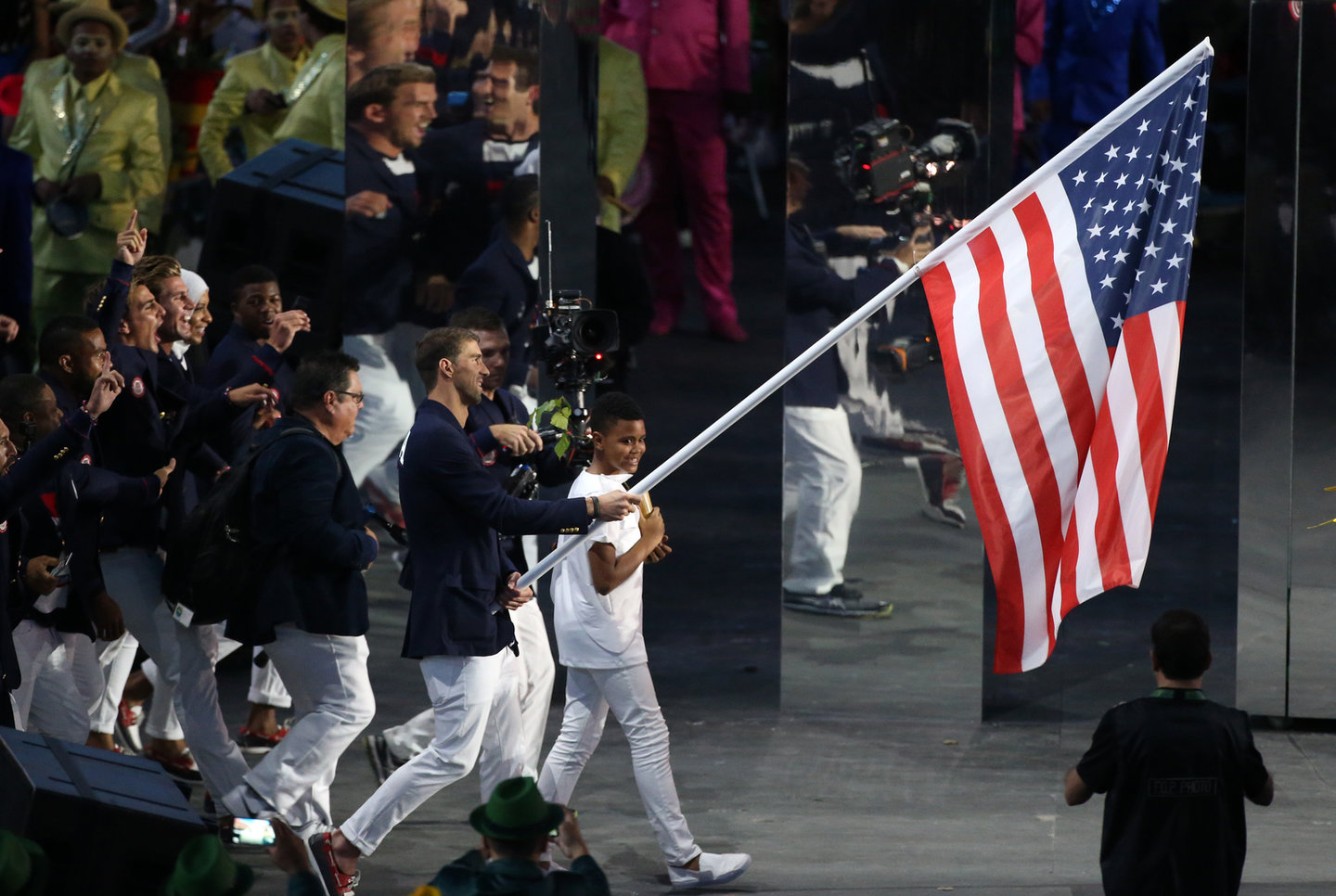
NBC holds long-term broadcasting rights to the Olympic Games
With regard to the Olympics, NBC, the Comcast-owned US national network, which holds rights to the games until 2032 (the Tokyo event is the last in the broadcaster’s current four-games, $4.38 billion deal), can see benefits to the delay.
Speaking at a conference in October, Molly Solomon, the head of NBC’s Olympics coverage, said that, in the circumstances, the postponement to 2021 had come as “a relief” and given her team “a chance to reset.”
She added: “Once we got the new dates, that was comforting because everyone knew what we were aiming towards… We're now planning not only for Tokyo, but for Beijing in 2022 as well.”
Solomon, a veteran sports producer who took up her current role in November 2019, said: “Although to some extent we’re still planning for the unknown, by November and December [this year], we’re going to have a lot of the details and coverage protocols handed down by the International Olympic Committee.
“With our planning, 90 per cent of our production processes were actually in place by the time Tokyo was postponed - it’s a mass global event, and takes years of planning in advance.”
While it is a significant addition to NBC’s sports programming commitments next year, the delay has provided more time to introduce new innovations, with Solomon saying: “Production workflows have increased by five to 10 years in the last three to six months in terms of efficiency… we’ve also experimented in terms of audio, mic’ing up athletes and pumping up ambient sound.
“We’ve also tried new camera angles, we’ve been able to be a bit more intimate with our production and presentation actually with no fans in the venues. With the amount of innovation and change that has happened to us as a broadcaster in recent months, things won’t be exactly the same next summer, but we think they will be better in some ways.”
Naturally, given the evolving health situation, there remains a level of uncertainty over the presentation of Tokyo 2020, with Solomon, who will oversee on a day-to-day basis all editorial production of the coverage, saying: “We look forward to getting updates from the IOC in the next few months over what we’ll be able to do and how we can operate.”
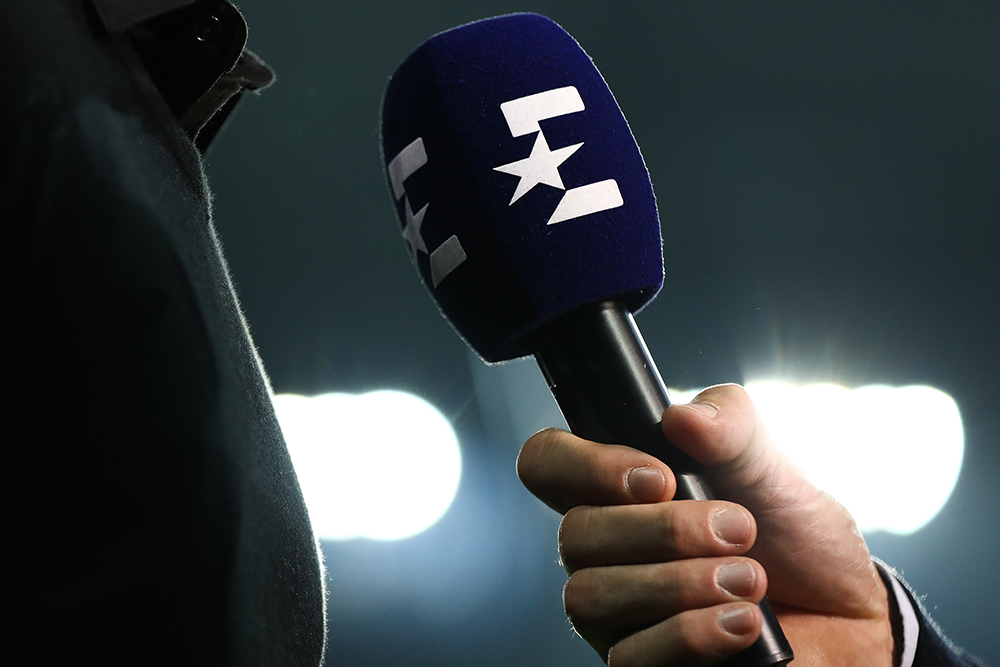
Eurosport is gearing up for extensive coverage of Tokyo 2020
The delay of Euro 2020 and the Tokyo Olympics to 2021 means broadcasters will have to wait for anticipated advertising and subscription revenue increases, but also pushed associated costs to next year.
For example, although revenue at the International Networks arm of US media giant Discovery was down in both the second and third quarters, expenses related to Tokyo 2020 have been held over to 2021.
Discovery holds European rights to the Olympics in a €1.3 billion ($1.5 billion) deal with the IOC covering four games to 2024, and was due to provide coverage of this year’s games in 50 European countries (excluding Russia), notably via its pan-continental broadcaster Eurosport, and has agreed sub-licensing deals with free-to-air networks in these markets.
Discovery had budgeted for expenses related to the games to contribute to an operating income loss of between $175 million and $200 million in the third quarter of 2020, which has now been pushed back to next year.
“Our schedule of sporting events is condensed while a number of events that have been delayed have still not aired, which obviously impacts subscription revenues, as well as advertising revenues.”
Eurosport was unable to show anywhere close to its normal amount of events over the summer as leagues and competitions across sports such as soccer, cycling, tennis and motorsport were all affected.
It made up for lost time in the latter half of the year as cycling’s Tour de France and tennis’ French Open, which were postponed from earlier in the year, were ultimately held in August-September and September-October, respectively.
However, speaking in a conference call in November to announce Discovery’s Q3 results, Gunnar Wiedenfels, the company’s chief financial officer, said: “Our schedule of sporting events is condensed while a number of events that have been delayed have still not aired, which obviously impacts subscription revenues, as well as advertising revenues.”
On the other hand, there have been cost savings, and the restrictions brought about by the pandemic have led to creative solutions, with Eurosport employing a remote production solution for its coverage of tennis’ US Open and French Open.
This featured the Eurosport Cube, an innovative mixed-reality studio based in London, which offered augmented reality (AR) and enhanced graphics, and allowed guests, hosts and experts from around the world to be integrated in the presentation.
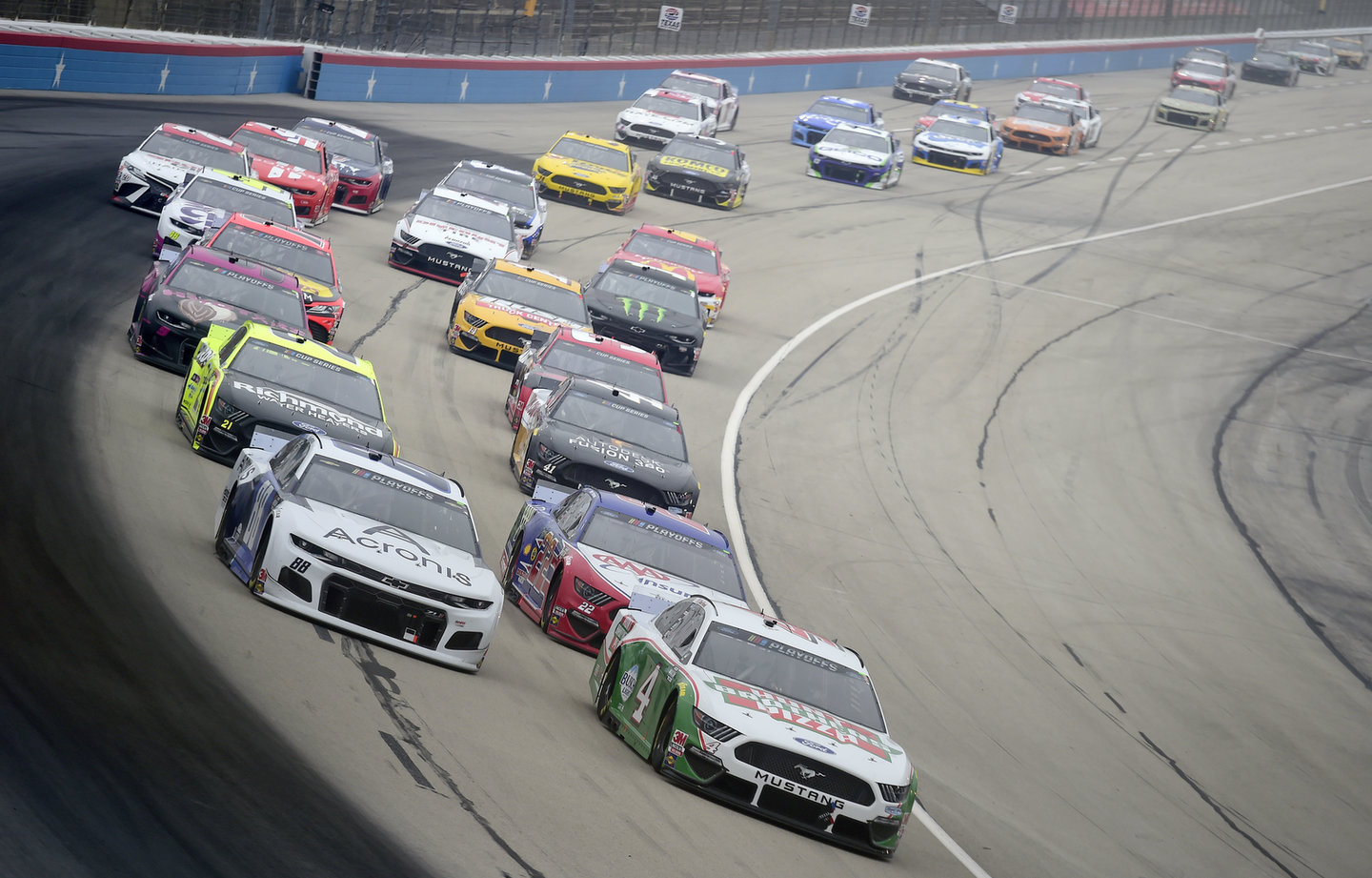
Nascar is taking a two-week break for the Olympics in 2021
Amid the disruption, event organisers have also shown willingness to be flexible, with US motor racing’s Nascar Cup Series to take a two-week break next summer to enable broadcast partner NBC to focus on the Olympics.
Brian Herbst, senior vice-president, media and production, at Nascar, tells Sportcal Insight: “We were originally scheduled to have those two off weeks in 2020, but we were able to use those off weeks to run races because there was no Olympics. So we're basically delaying that break for our industry into 2021. So NBC will run the Olympics, and then we actually have a marquee road race coming out of the Olympics that it will promote.”
However, he claims that Nascar has not allowed itself to be overly influenced by the wider sports calendar and commitments of its broadcasters, saying: “I think we learned in 2020 that you can only contingency plan so much. You could have developed 100 versions of this year’s schedule for instance.
“If there are other moves that we need to consider, if [NFL] football were to be delayed for instance, then we’d have to take a look at what that meant for [other TV partner] Fox in particular. But, at this point, the only event of note is the Olympics, which we’ve accommodated during the NBC half of 2021.”
DIGITAL OPPORTUNITY
A universally acknowledged consequence of the disrupted sports calendar of 2020 has been the accelerated trend towards digital solutions, and these will continue to be widely employed next year as rights holders and broadcasters look to reach audiences in a busy landscape.
This will particularly apply to the so-called smaller sports which, with major events having been delayed to 2021 and TV companies having to prioritise already stretched resources, face an even greater battle than normal to get exposure on mainstream media.
In addition, all sports are being encouraged to be ever more creative in the presentation of content to fans on over-the-top platforms, while esports, which have enjoyed a greater spotlight this year, will remain a significant element of the output in 2021.
Infront believes that a Rubicon has been crossed, with Marty saying: “This pandemic has acted as a catalyst for digitalisation. Consumers are much more aware of OTT and other offerings now, much more than they were this time last year. Platforms that use an OTT base for their primary content distribution, like MXGP, see that effect even stronger.
“Fans are witnessing the democratisation of storytelling and ideas shared on social media, while we evolve new remote production and storytelling techniques. At Infront, we are managing content creators in three continents – using their mobile phones to report from their bedrooms, the badminton court, the mountain top and the gym, for international federations like the BWF or [skiing’s] FIS.
“We have always been keen on finding the right mix between digital channels and traditional broadcast. However, you need to move to where your audience is, and if it is more online than we need to ensure we’re advising that our clients meet them there.”
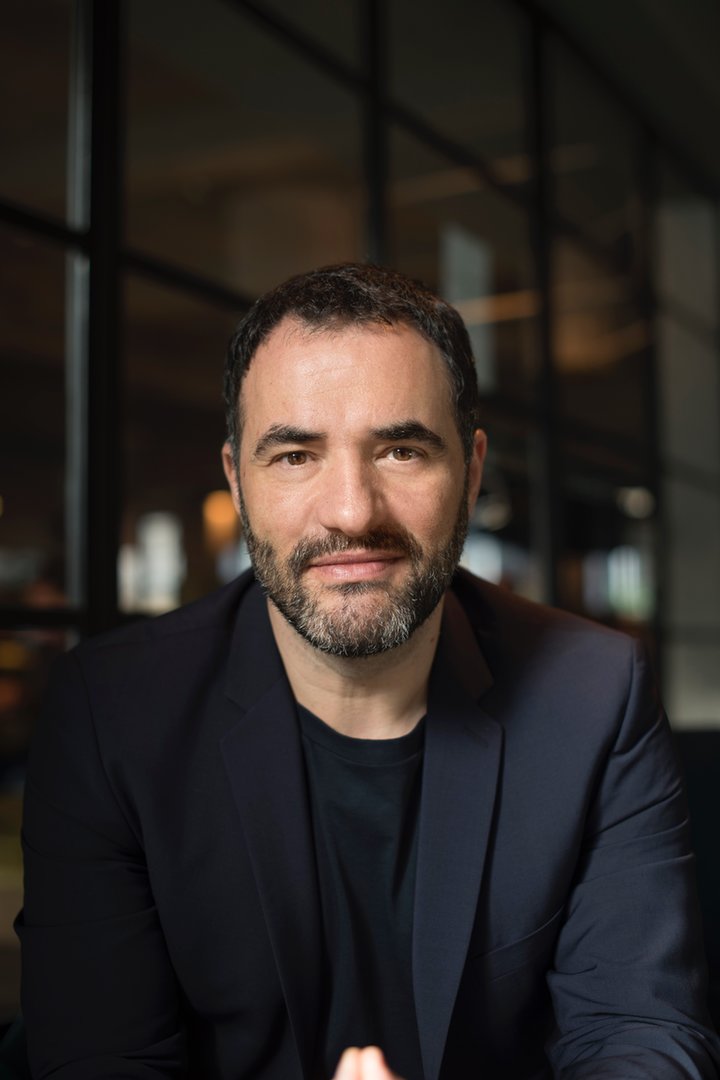
Gilles Mas, video experiences president at Deltatre
Deltatre, whose clients have included soccer’s Fifa, Uefa, English Premier League and Germany’s DFL, the International Olympic Committee, the NFL, men’s tennis’ ATP, golf’s European Tour, WWE, UK broadcasters the BBC and BT Sport, US media giant Discovery and Japanese multinational corporation Sony, naturally saw a slowdown in its sport production business during the Covid stoppage.
However, the company, which provides graphics, data and live broadcast solutions, used the time to develop more remote forms of operation, to be ready when leagues and competitions resumed with an increased level of off-site production in the middle of the year.
Mas, who transitioned from president of the Live division to head of the over-the-top business in June, says: “Obviously we had chunks of our revenue moving to 2021, but I think we have had some interesting conversations and trials so that actually the future will be slightly more virtual in terms of the way sport is produced.”
He does not envisage Deltatre struggling with the anticipated plethora of sport next year, saying: “With or without the pandemic, we are used to operating many events in parallel because of the league formats we are exposed to. I think where we see our challenges is in everyone will want very high-end digital experiences to cover these events.
“So we have to scale our software factories to be able to provide premium experience products to the broadcasters for the fans… We’re certainly not going to complain at more business. Yes, there are scalability challenges, but we are a very well distributed organisation that can rely on many hubs with developers and QA testers available to us.”
“There was a slowdown in closing big deals, but the reality is that in the last few months, we’ve seen a big take-up in the market again, strongly in digital, so I think 2021 looks promising.”
On the OTT side, Deltatre was affected by delayed decision making in tenders it was responding to in the early part of the year, but this has been compensated for by an increase in opportunities resulting from the accelerated digitalisation.
Mas says: “There was a slowdown in closing big deals, but the reality is that in the last few months, we’ve seen a big take-up in the market again, strongly in digital, so I think 2021 looks promising. It should be a unique year, with a big amount of pandemic impact, but new ways of delivering sports to fans are showing up.”
In a year characterised by major events such as the delayed Olympics and Euro 2020, he agrees that the smaller sports are going to face the biggest challenge in terms of exposure, but claims this can be met via appealing digital offerings.
Mas says: “The problem is for smaller properties that are going to be overshadowed by the big guys. I think that if you’re a small organisation, it would have been wise for you to engage in the direct-to-fan experience in 2020 as a minimum, and probably a bit before because that’s where you can play your cards right.
“At least you have a way to reach your fans, then it’s how you make sure they stay on the platform, and the way you promote your sports on the channels where the fans are, now that they are digital savvy, whether it’s social media campaigns or finding the right editorial tone.
“This is where you can make a difference, and if you don’t make a difference, then you’re going to have quite a bad year in ’21. The people who are late in joining the digital train are going to suffer more, and those who joined a while ago are going to have to rethink their editorial concepts to make them relevant to their audience and their sport.”
SPONSORSHIP CHALLENGES
The delay of the Tokyo Olympics and Euro 2020, in particular, has undoubtedly presented a headache for sponsors that had been preparing for the events for years and allocated budget to activation this year.
However, some of the IOC’s TOP sponsors received a boost in March when they were assured that any agreements set to expire this year would remain valid for the rescheduled Olympics next summer.
Four of the 14 companies – Atos, Dow Chemical, Procter & Gamble and General Electric – had deals running only to 2020. However, Atos, the France-based IT company, has now extended through to the Paris 2024 Olympics.
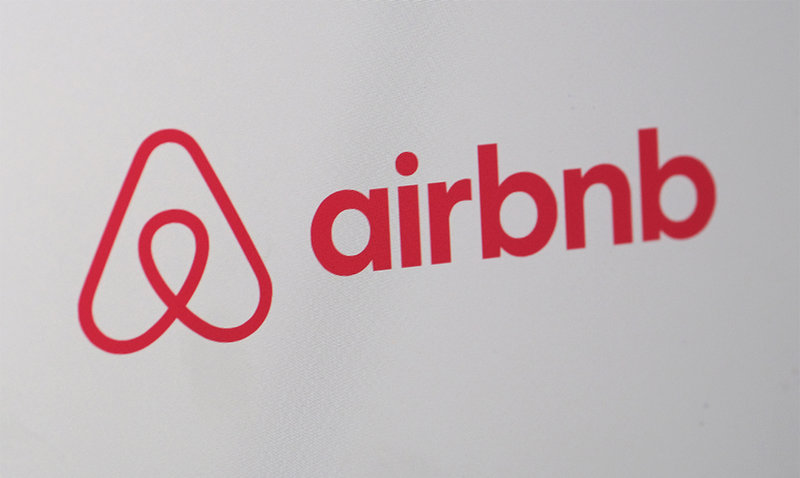
Airbnb is a new TOP sponsor of the International Olympic Committee
Bach said at the time of the postponement: “These games are called Olympic Games Tokyo 2020, therefore for me it is a logical consequence that the sponsors of the Olympic Games Tokyo 2020 keep their rights even if these games are organised in 2021.”
One partner keeping a close eye on developments with regard to the planning of next year’s games is Airbnb, the online booking accommodation service which only became a TOP sponsor in November 2019.
Having signed a nine-year deal with the IOC covering the next five summer and winter Olympics, the company has said it will use the partnership to promote its ‘Airbnb Experiences’ arm.
Although its strategy for Tokyo will be dictated to a large extent by whether overseas spectators will be able to travel to the games, Airbnb claims that it has already been able to pivot.
Maria Parra Rodriguez, director of global launch and partnership communications, tells Sportcal Insight: “Our plans for Tokyo were in the very early stages at the start of the pandemic so, in fact, the change in timing had minimal impact.
“As a fairly nimble start-up, we were actually able to quickly optimise our Online Experiences project, and launch a summer festival of online experiences in partnership with the IOC during the week when the Olympics were meant to take place.”
She adds: “Being able to work hand-in-hand [with them] afforded us, as a new partner, the opportunity to deliver on the goals of this very important partnership despite the postponement, and allowed fans around the world the opportunity to connect with their Olympic idols.”
With regard to Tokyo 2020, the delay could have greater repercussions for local sponsors, which are facing significant extra costs.
Indeed, a poll conducted by Japan’s Mainuchi Shimbun newspaper in October showed that while no partners intended to withdraw, the biggest concern was the amount of additional financial contributions, followed by whether the games will actually be held and the weight of their own business performance and financial conditions amid the pandemic.
The domestic sponsorship programme for Tokyo 2020 had raised an Olympic record $3.3 billion from around 70 companies, and in July, Toshiro Muto, the chief executive of the organising committee, expressed hope the partners would help to ease the cost of the delay.
He said: “I know that businesses are in dire circumstances because of coronavirus but still there are companies who are coming forward to say they want to sponsor the games… We are hoping that there will be additional contributions [from existing sponsors] in terms of sponsorship fees, because of the postponement of a year. We would appreciate a lot if they agree to this.”
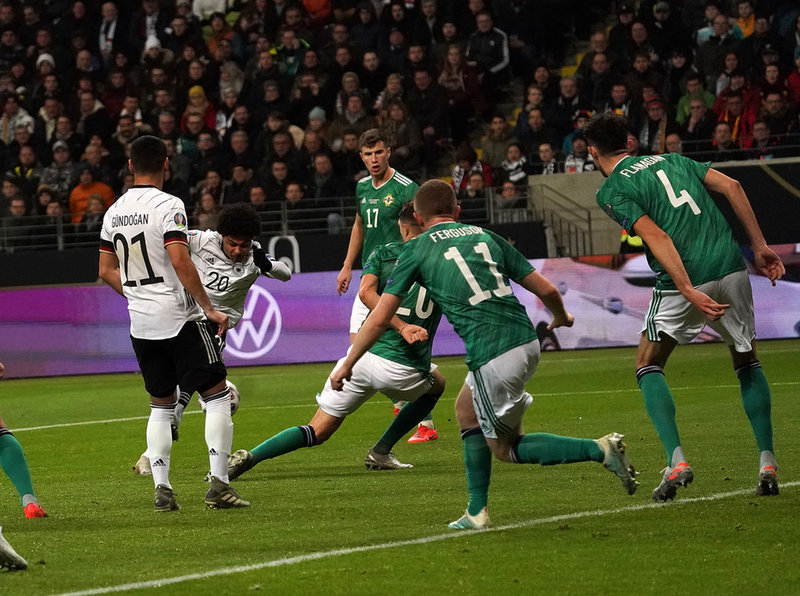
Volkswagen is among the major sponsors of Euro 2020
While some Euro 2020 sponsors are likely to have competing commitments, and be revising budgets in light of Covid-19, Epstein does not expect to see a decline in sponsorship activity at the tournament.
He says: “We’re working on the basis that we’ll be able to allow our partners to activate their rights to the fullest extent possible. So, unless the situation next summer changes or dictates differently, there is no planned reduction in activation opportunities.”
Major Euro 2020 partners include the likes of Alipay, FedEx, Hisense, Volkswagen, Coca-Cola and Heineken.
Outside the major events, Infront, which markets a wide variety of sponsorship rights, has seen partners have to adapt, but is optimistic about the market heading into 2021.
Marty says: “Sponsors will put more scrutiny than ever on ROI for sponsorship due to the challenging economic climate the world is finding itself in. That just means we need to ensure we are absolutely clear on the continued benefits of sports sponsorship.
“The market was of course negatively influenced from March to May, but, as sport has found a way to return, sponsorship is finding its feet again. Brands were looking how to get the most out of potential sponsorships before Covid-19 hit and although agreements have become a little more varied and customised, we aren’t experiencing a lack of interest.
“I think the average price of packages has naturally been adjusted as we obviously cannot include any onsite activation or hospitality. However, wherever we have inventory left, we are selling it. This is especially the case with winter sports.
“The majority of our winter sports properties have all announced new and renewed partnerships over the last few weeks and months. These include the Vierschanzentournee (Four Hills Tournament) ski jumping, luge, bobsleigh and skeleton. We are still receiving offers that are aligned with what we would usually get around this time of year normally.”
2022 ONWARDS
So seismic has been the impact of the pandemic on the sports calendar that its impact will be felt by governing bodies and event organisers for several years.
At the elite level, the IOC now faces an Olympics and a Winter Olympics in the Far East in quick succession, in the shape of the delayed Tokyo games in July and August of 2021 and the Beijing games in February 2022 respectively.
It will be the first time that the summer and winter editions have been held so close to each other since 1992, with all games after that having been held in alternate even-numbered years.
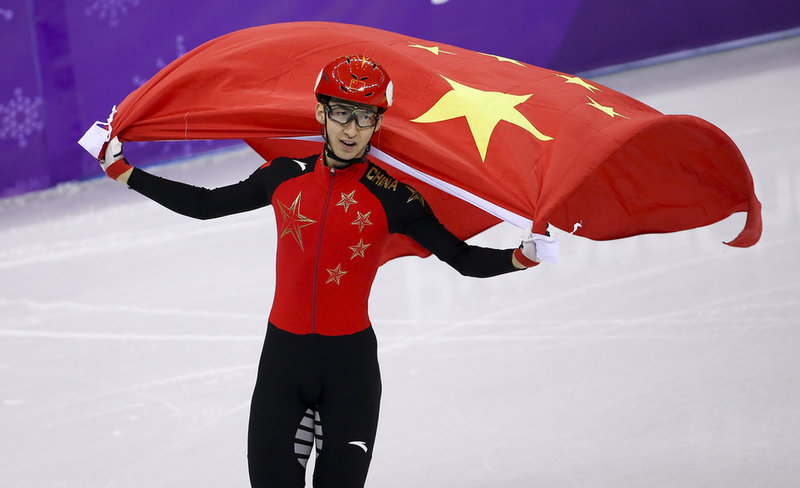
The Beijing Winter Olympics will be held just six months after the Tokyo Olympics
However, the IOC can see pros as well as cons to this arrangement, stating after a coordination commission meeting in June: “Despite the situation of two Olympic Games being held within six months of each other, all parties will make pledges to work closely together to capitalise on the opportunities and challenges to be faced through a ‘Peak to Peak’ approach, from Tokyo to Beijing."
As previously stated, the rescheduling of the Tokyo Olympics has already led to the 2021 World Athletics Championships in Eugene, Oregon in USA and the FINA World Championships in Fukuoka in Japan being postponed by 12 months to 2022.
While the delay will have an impact on its already diminished finances, World Athletics has sought to put a positive spin on the switch, with president Sebastian Coe speaking of a “bonanza” for fans of the sport, with its showpiece event in July 2022 to be swiftly followed by the Commonwealth Games in Birmingham in England, and the multisport European Championships in Munich in Germany, both of which will feature track and field.
Speaking earlier this year, Coe said: “More than 70 of our member federations are part of the Commonwealth and more than 50 of our member federations are European so our guiding principle in rescheduling the World Championships was to ensure enough space was created around the centrepiece World Athletics Championships for athletes to choose other major events to compete in.
“We were also very mindful that we did not want to damage the other major championships in 2022, because they are also very important to our sport.”
Also pushed back as a result of the Tokyo 2020 rescheduling are the next World Games, the multisport games featuring non-Olympic disciplines, in Birmingham in Alabama, USA, which will now take place in July 2022.
It has led to the rather confusing scenario of two iterations of Birmingham 2022.
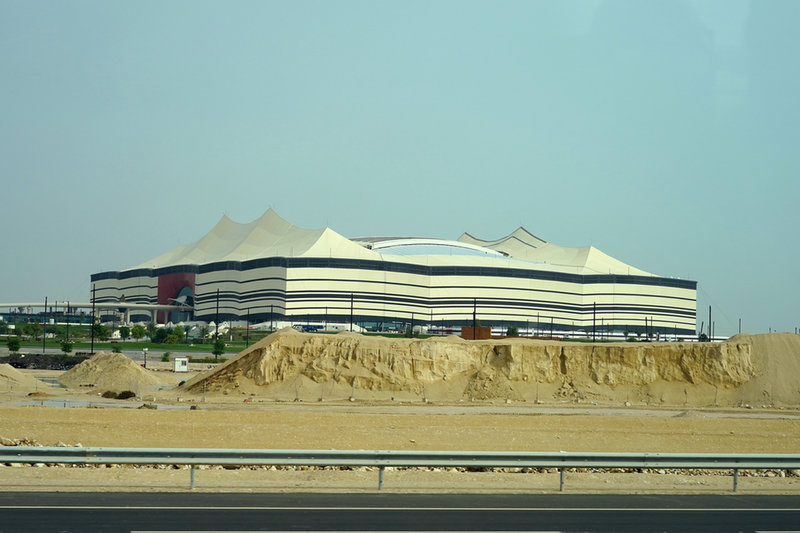
The Qatar World Cup will not take place until the end of 2022
Meanwhile, following the success of the 2019 Fifa Women’s World Cup in France, there will be disappointment that women’s soccer has to wait for its next showpiece events, with the Olympics put back to 2021 and the next Women’s Euro in England to 2022.
However, the international soccer community may come to value the fact that, as a result of the hot summer temperatures in the Middle East, the decision has already been taken to stage the 2022 men's World Cup in Qatar in November and December, rather than the traditional hosting months of June and July.
While the switch was controversial given that it encroaches onto the European club season, forcing the top leagues to take a break, the later start does offer some flexibility in the calendar for Fifa to complete the qualifying campaign and for other competitions to get back on schedule.
Meanwhile, some events are using postponements to switch to a new cycle, notably the Ryder Cup, which is moving back to odd-numbered years with effect from 2021, with the following edition to take place in Rome in 2023.
The contest has been held in even-numbered years since the 9/11 terrorist attacks in USA in 2001 forced that year’s event to be put back 12 months.
“It was truly inspirational that in a time of such challenge and difficulty professional golf served as a unifying force and we will benefit from this year for years to come.”
The new schedule gives allocated hosts more time to prepare, and means that, after next year’s Ryder Cup, the showpiece will take place in non-Olympic Games years, and therefore avoid competing for attention with Olympic golf tournaments, with the sport having returned to the games at Rio 2016.
Mengel says: “We’re so pleased and thankful that each of our future sites – both in the United States and Europe – were open and willing to shift their respective dates to host. It was truly inspirational that in a time of such challenge and difficulty professional golf served as a unifying force and we will benefit from this year for years to come.”
While the pandemic will have complicated the efforts of some sports, notably rugby union, to devise a new harmonised global calendar in the coming years, it could provide impetus for others to achieve greater equilibrium.
Marty, however, doubts whether there is a concerted desire for restructuring, saying: “Many sports have trouble aligning their own international and club calendars so an overall alignment of sport as a whole is very unlikely. Once again it depends on the sport as well as where we find ourselves in 2021.
“What we are doing is working with our partners to find the right balance of ensuring their sport gains as much exposure as possible at the most relevant times.
“Doing that with one sport is a challenge, but with several it becomes a very tough task indeed and right now there is a greater emphasis on flexibility than ever before. However, the quality of the product should never be tampered with in the face of a quick win.”